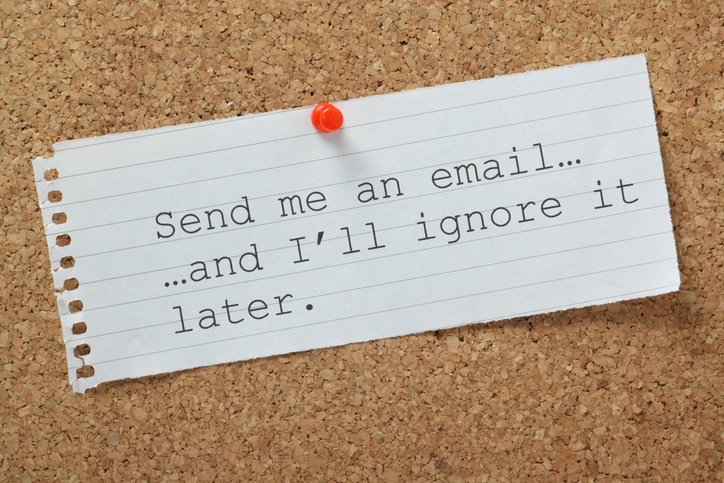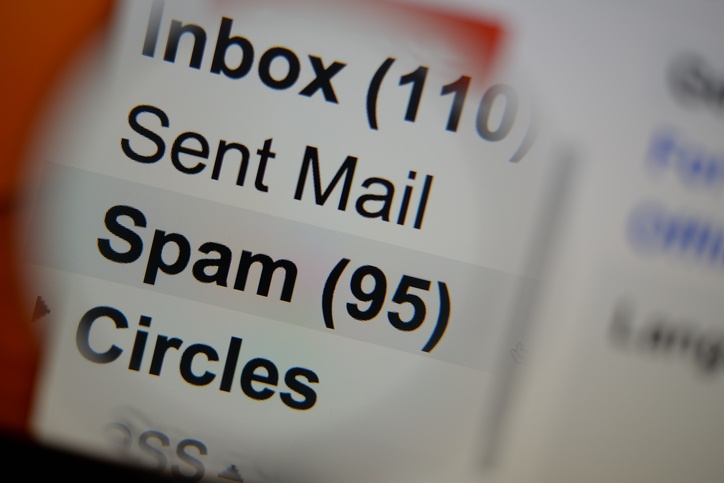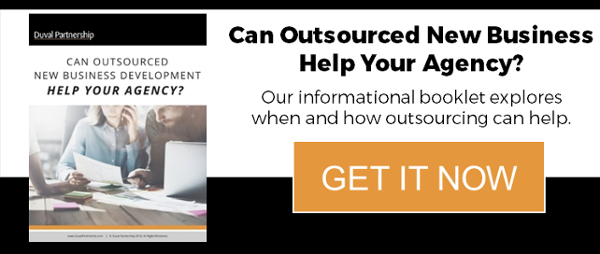As promised, we are following our email subject line post with a post dedicated to best practices for email opening lines. We've gone through tons of tips for email opening lines and pulled out only those that we think are appropriate for agencies trying to generate new business, typically via cold emails.
Just as your email subject line largely determines whether your email is ever opened, your opening line determines whether anyone cares to read it. Consider each line of your email as a contest to entice the reader to continue on to the next line. They really don't want to; it's up to you to convince them.

With roughly 40% of your recipients likely to view your email on mobile (according to ContactMonkey), having a strong email subject line and opening line is more critical than ever.
How can you tell if your opening line is effective? One indication is your click-through rate. According to Smart Insights, the average click-through rate across industries is 3.26%. For perspective, when we send cold outreach emails, our click-through and response rate is several times that benchmark.
Challenges faced by agencies doing lead generation include:
- a longer sales cycle
- a higher value/higher cost sale
- tons of competition
- problems differentiating themselves from competitors in a meaningful way
Considering that, here are some do's and don'ts to consider when tackling your agency new business lead generation emails.
But first...
No matter what your opening line is, your email will not be effective if you have not first done the work to narrow down your target list so that you know the following things:
- Your prospect's role and why they should care
- Their company's situation and challenges they may be facing
- Why you are reaching out to them. (Specifically, that "why" should be that your agency is objectively qualified to help them solve their challenges; in other words, you have something of genuine value to offer them).
If this is starting to sound like it might not be conducive to a bulk email, you are correct. If you aren't sending customized, one-to-one emails to your prospects, you are probably working with a list that is not focused enough, making it difficult to understand them beyond the broadest generalizations. Every part of your email should be focused on solving problems, demonstrating value, building credibility, and providing solutions to your recipient. When it comes to leads lists, we see greater value from a stronger leads list than a longer leads list.
Challenge: Counteracting writer's bias
Who typically writes your lead generation emails? Is it your new business professional? Is it the agency owner? Is it someone external to your agency? Each of these parties brings their own "baggage" to the table when writing an email. If it's someone external, do they understand your agency well enough to capture its voice and unique selling points? If it's the agency owner, are they so passionate and close to the agency that they put in way too much "this is us" and not enough "this is how we can help you"? If it's the new business professional, are they coming across as too sales-y?
The fix? Send your email copy on the rounds to various parties for "impolite editing." Impolite means people have license to gut entire portions and offer honest critiques without having to consider the writer's feelings. This is hardest when employees are put in the position of critiquing their boss' work. It's also imperative to include feedback from parties outside of your agency. Often people in an organization have been drinking a lot of the agency Kool-Aid, and they lack the outsider perspective necessary to ensure the messaging is unique, sensible, and compelling. Yes, it's one more thing to do, but the potential upside of having strong email copy is a new account.
Ineffective email opening lines
I've grouped bad email opening lines into several buckets, as follows:
- The generic introduction: "Hi [prospect name], my name is [who cares], and I work for [who cares]." Why? Harsh as it may be, nobody cares. And you sound like a typical salesperson. Your name and company should already be in your signature line, and your name also should appear in your email address in the "From" field of your recipient's inbox. Restating the obvious serves no one.
- The entirely interchangeable introduction: "We offer [a lot of marketing speak about what your agency does or offers that is not extremely meaningful or unique to your agency]." And who cares. People won't keep reading.
- The "I'm not worthy" introduction: "Just checking in," "I know you're really busy but...." Don't downplay your importance. Are you offering something of value, or are you not?
- The self-centered introduction: "I want...," "I need...," "Can you do me a favor...?" Edit out all the self-centered language and make it focused on THEM.

Better email opening line tactics
Leverage an event, trend, or news item. Try referencing a specific event or trend that relates to their company. Perhaps the person you are reaching out to was recently promoted, or the company just hired a new CMO or opened a new agency search, or they were recently in the news for an award or a philanthropic project. You may have a few suggestions to offer based on what you've read. The possibilities are wide open; just make sure you can make it sound genuine and tie it back to why you are contacting them without too much reaching.
Flattery. When done right, flattery gets you everywhere. You might compliment an article, a blog post, an interview, a video, a social media post, etc. Perhaps ask a thoughtful follow-up question. Be sincere and be sure it relates to what your agency can do for them.
Reference a common problem your agency has solved for companies like theirs. If your agency specializes in the very latest technology, maybe that means referencing some of the game-changing technology trends that are happening right now and making a slight play to their fear of being left behind. Why does this matter for their company, and why does it matter now? How has your agency made this a non-issue for companies like theirs, facing similar challenges as they are facing? This strategy can be delivered either as a statement or a question. Strengthen it with tangible, measurable business results.
Leverage your thought leadership content. If your agency has worked on a groundbreaking study, or if someone has written a particularly insightful, well-regarded article, etc., then you might position your email outreach to share that with the recipient. Make sure you are very clear about the "why." For example, "Because so many brands face [this challenge], we did [this study] to help them [get better at something]. I thought you might be curious to know what we found because it directly relates to [your brand]."
Shared connection. Perhaps you know someone in common. Or you went to the same school, worked for the same company, worked in the same city, etc. Obviously, saying "We both worked in New York!" is not as meaningful as it might be to say, "I see we've both worked in Albuquerque [or another smaller town]."

More tips
Emma Brudner wrote a blog post on email opening lines for Hubspot, where she grouped effective email opening lines into three buckets:
- Email opening lines that use questions
- Email opening lines that reference trigger events
- Email opening lines that boost their ego
Since we've already covered flattery and specific events, here are some of the examples Emma provided for using questions in your email opening line:
- "Is [something] a priority for you right now?"
- "Did you know [interesting statistic]?"
- "What would it mean to you if your business was able to [achieve some benefit/outcome]?"
Any of these have the potential to work well for you, provided the detail you use to replace the placeholder is relevant and compelling enough.
Parting thoughts
Is your opening line (and entire email) clear, brief, and relevant? Is every part of it focused on providing value and compelling the recipient to take the next action (read the next line, then the next line, possibly click-through, possibly reply)? Apply these do's and don'ts to your agency lead generation emails and track how much your response rates improve!
Need lead gen help? You're in the right place. Learn more:
You may also want to read:
- Best Practices for Agency New Business Emails: Subject Lines
- 6 Practical Reasons Why Your Agency Needs a Sales Process
Image credits: Email iStockphoto.com/Thinglass; check mobile iStockphoto.com/lechatnoir; inbox iStockphoto.com/Gil-Design



